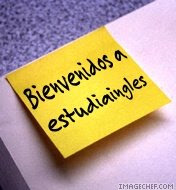Well, I will be visiting one of the new wonders and am very exited. I will spend Christmas and New Year's day there in the magnificent Macchu Picchu located in Cuzco, Peru. I will not be posting and will resume the English classes the first week of January.
I want to share this opportunity to send my best wishes to all my readers and hope all your goals will come true in 2008.
 continuaran en el mes de enero. Quiero agradecer a todos los que han visitado esta pagina y en especial a los que se han subscrito. He disfrutado compartiendo mis conocimientos y continuare haciendo lo mismo en el 2008.
continuaran en el mes de enero. Quiero agradecer a todos los que han visitado esta pagina y en especial a los que se han subscrito. He disfrutado compartiendo mis conocimientos y continuare haciendo lo mismo en el 2008.Quisiera también aprovechar para avisar a mis lectores que por motivos de expansión de la pagina el nombre de estudiaingles cambiara a uno nuevo. Esto sucederá en el mes de enero y escribiré un post para que los que se han subscrito a estudiaingles se subscriban a la nueva pagina
Gracias por su comprension y que tengan unas lindas fiestas.












